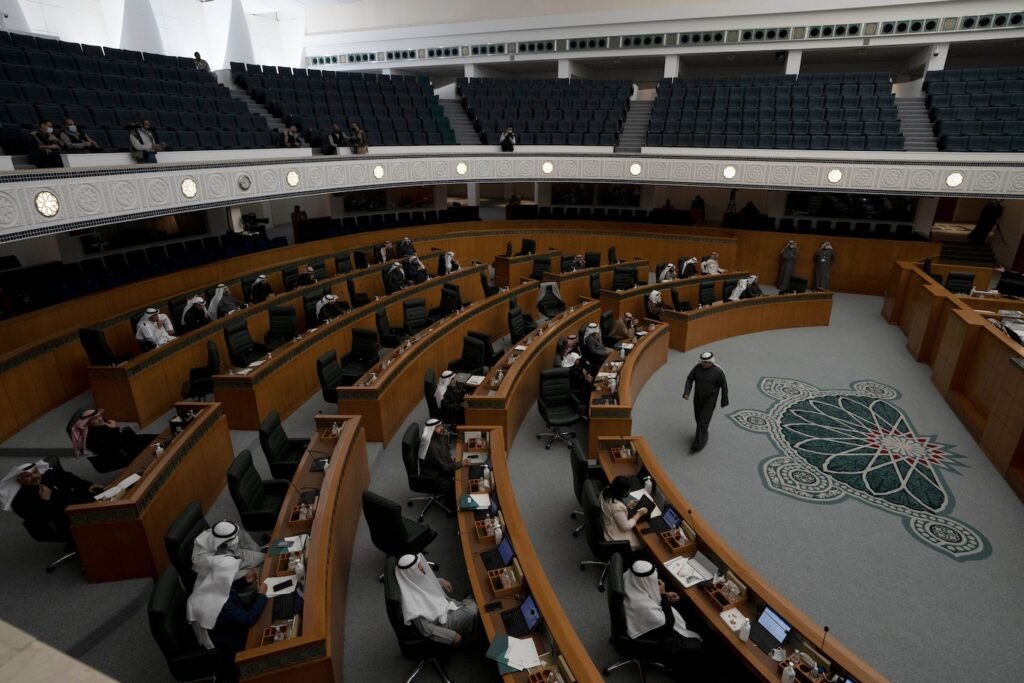However, recent events have called into question the sustainability of Kuwait’s political order. On May 10, Emir Meshal Ahmed Al Jaber dissolved the National Assembly, just five weeks after the opposition won a majority in general elections held following the Emir’s previous dissolution of parliament. Also, unlike previous dissolutions, the May 10 dissolution was accompanied by the suspension of several constitutional provisions that mandated new elections within two months. Kuwait may be without a legislature for the next four years while the Emir rules by decree.
Kuwait’s authoritarian neighbors have either said nothing about these developments or have tacitly approved. This was expected: for them, the less democracy the better. The Biden administration’s stance is difficult to understand. So far, it has not publicly expressed concern or condemned them. A State Department spokesman said: “We are aware of the developments regarding the suspension of the Kuwaiti parliament. The Amir has spoken publicly about the issue in a televised address.”
This is not an everyday problem: Since Kuwait gained independence from Britain in 1961, parliament has only been suspended for an extended period twice, in 1976 and 1986. From 1992 until last month, parliamentary activity was loud, messy, energetic and essentially uninterrupted.
Indeed, Kuwait faces economic stagnation due to its inability to diversify its oil-based economy. After the death of his predecessor in December, the new emir quickly expressed frustration with a deadlocked parliament that he saw as exacerbating the problem. He dissolved it in February, citing “unrestrained and insulting language” from it. A general election in April (the fourth in four years) produced a parliament that was no longer compliant. A majority opposed the government’s reappointment of a member of the royal family as defense minister. Parliament also had to approve the selection of a new heir to the throne. Opposition parties, including Islamists, liberals, populists and the country’s Shiite Muslim minority, agree on little except that an independent and possibly stronger parliament is needed.
In a televised address announcing the suspension of parliament, the emir stressed that he would not allow democracy to be “used to destroy the state.” He blasted lawmakers for “unacceptable altercations.” He explained that during the suspension, which could last several years, democratic processes would be studied and amendments would be proposed, after which “decisions as deemed appropriate” would be made.
These comments are worryingly similar to the language that would-be autocrats have used in the Arab world and elsewhere when annulling election results. Meanwhile, former parliamentary candidate Musaed Al-Khalifa, who called for cabinet members to be selected by popular vote, was sentenced to four years in prison for challenging the emir’s authority. This month, former parliament member Abdullah Fahd was sentenced to six months in prison for insulting the judiciary. We do not necessarily support the political ideology espoused by these opposition forces. But in a free society, they have the right to express it peacefully.
Governance is far from optimal in Kuwait’s semi-democracy. Parliament makes it difficult for the executive branch to get much done. Ordinary Kuwaitis are frustrated by politicians’ inability to agree on economic reforms. An Arab Barometer survey earlier this year found that 41% of Kuwaitis agreed that the democratic system is indecisive and full of problems, up from 27% in 2018. Still, an overwhelming majority (85%) also agreed that while the democratic system may have problems, it is better than alternatives. These sentiments should be listened to by the Kuwaiti government, as should its friends and allies, especially those who sacrificed so much to liberate Kuwait 30 years ago.

